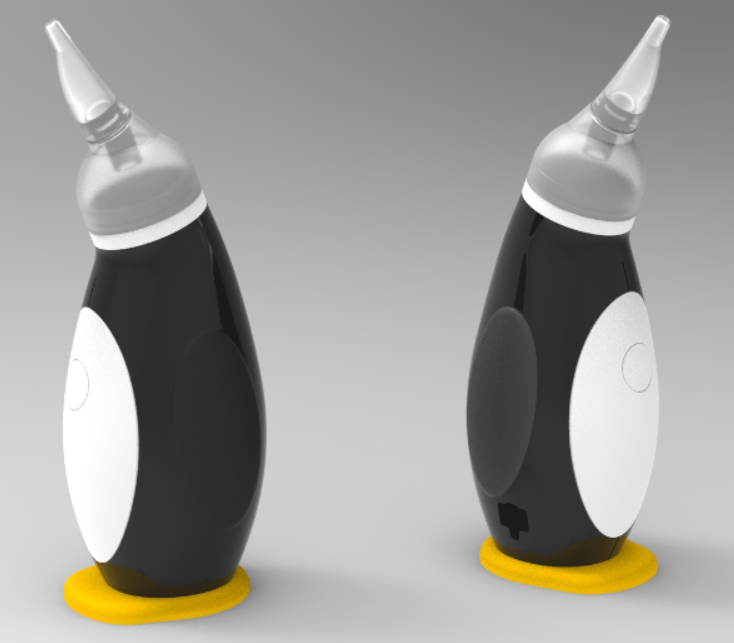Do you need a nasal aspirator?
For some babies,cold season seems as if it’s every season — especially since trying to relieve a baby’s congestion often feels like a futile task. (Let’s face it, getting snot out of an infant’s nose is no easy feat.) But while caregivers want to do everything they can to comfort their little munchkins when they are congested (meaning ridding that mucus from baby’s throat and nose), they need to make sure they are doing it safely — and when it is appropriate.
“The most important question in deciding if and when and how to remove mucus is whether or not the mucus is bothering your baby,” , pediatrician and author of parent like a pediatrician, tells Romper. “If your baby is congested but comfortable and there’s nothing else you or your pediatrician are worried about, it’s really OK to leave it there.” Of course, parents and pediatricians alike know it’s hard to hear your baby sniffling and coughing — but it’s important to understand the causes of infant congestion, when to contact a healthcare provider, and, if necessary, how to get mucus out of baby’s throat and nose naturally (and with minimal tears).
“Unfortunately, babies do get sick. This is a normal part of childhood, especially for infants in the first year of daycare,”. “Washing hands often and well, and keeping children away from sick people — or keeping them home when they’re sick — can go a long way to minimize their exposure to illnesses, but it may not fully prevent it.”
Almost anything can result in an irritation of the nasal passageways (and thus an increase in mucus) — including a viral or bacterial infection, environmental factors that can cause rhinitis (or a stuffy nose), and reflux, which can cause a buildup of mucus secretions. While she adds that it is important to rule out or address any underlying health issues that may be contributing to congestion in the nose and throat, this condition in itself is pretty common in babies.
Also, a little congestion can often sound like a whole lot. “Many young infants, especially, can sound very congested because of a build-up of mucus — not because the volume of mucus is excessive, but because they have tiny nasal passageways which are easier to occlude,” . This, becomes less problematic as both the size of the passageways increases and the child is better able to clear them. Diamond also notes that babies’ breathing physiology — newborns breathe almost solely through their noses — is different from older kids and adults, making normal congestion (which a lot of babies are born with) that much more apparent.
But while common in babies, congestion “should be checked by a pediatrician or health care provider if it is causing issues with feeding or accompanied by a fever or irritability,”.Babies under 3 months should be examined for any congestion or cough (and before administering any of the home remedies or interventions below), and persisting symptoms in older infants should be addressed by a healthcare professional, as well. Basically, if a parent is concerned at all, getting your child examined is always the correct course of action.
A automatic nasal aspirator — in conjunction with saline drops to first loosen or thin out the mucus — can literally help suck out some of the snot, especially before feeds or sleep time. though, emphasizes that extracting mucus should be done gently. “Sometimes overuse of the bulb syringe may cause irritation in the nasal passage,” she explains. “If the nasal passage is getting irritated or becoming red then it is best to continue saline nose drops without using a bulb syringe. Using a non-medicated ointment such as Vaseline or Aquaphor would help skin irritation secondary to mucus congestion around the nose area.”
Post time: Nov-18-2022




